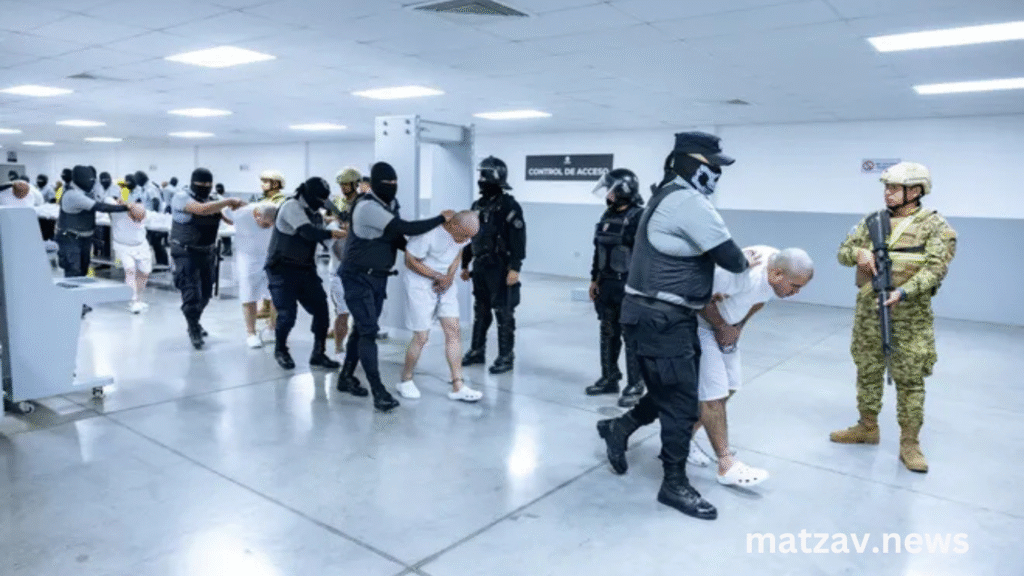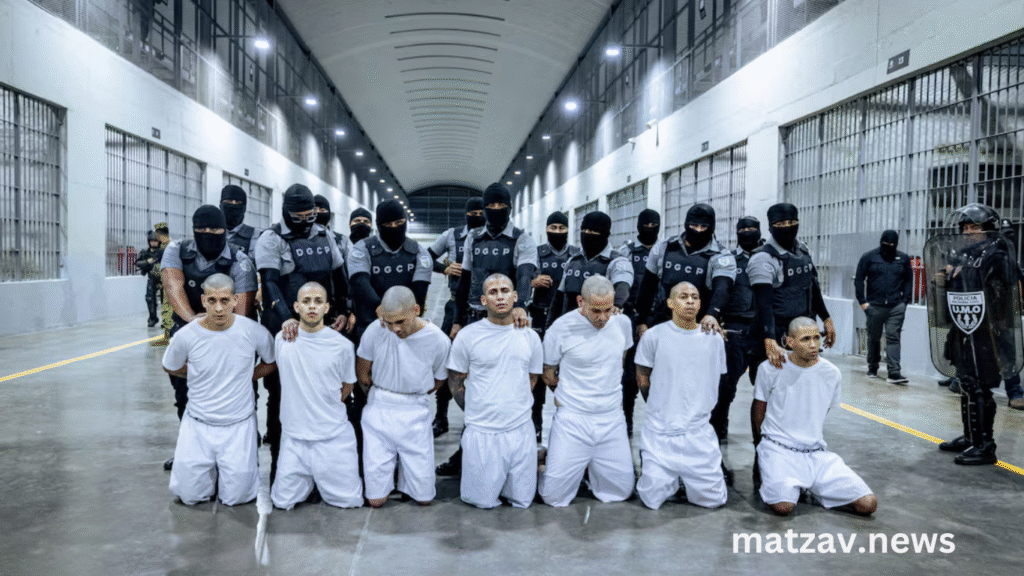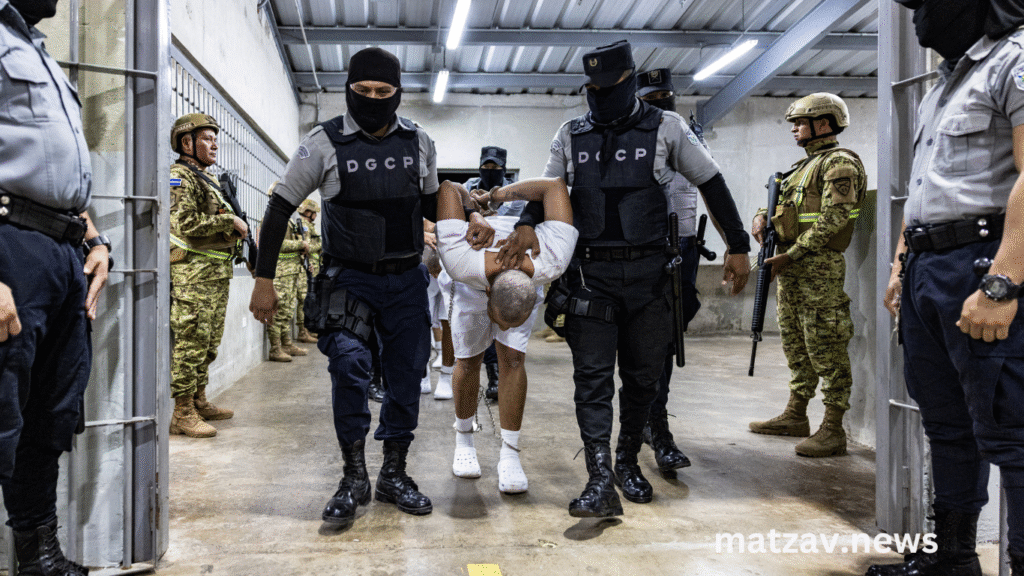The notorious MS-13 (Mara Salvatrucha) gang has been synonymous with violence, fear, and a reign of terror in multiple countries, particularly in the United States and Central America. Known for its brutal tactics and tight-knit structure, MS-13 has cultivated a reputation for wreaking havoc in communities across the globe. Recently, police records have surfaced exposing the violent behavior of an alleged MS-13 member who was deported to El Salvador after serving time in the U.S.
The Deportation of an Alleged MS-13 Member
In a controversial move, U.S. immigration authorities deported a gang member back to his home country, El Salvador, amid concerns about the safety and stability of the region. The deportation was part of the U.S. government’s broader efforts to curb gang violence. Still, it has raised numerous questions about the effectiveness of this strategy and the potential risks involved for both the individual and the community.
Who is the Alleged MS-13 Gang Member?
The individual at the center of this story is a man whose identity remains protected for legal reasons but whose violent actions have been documented by law enforcement. Known to be a member of the MS-13 gang, the suspect was involved in various criminal activities, ranging from assaults to drug trafficking. Law enforcement reports indicate that the alleged gang member’s behavior was notably violent and posed a significant threat to public safety.
How the U.S. Immigration System Handles MS-13 Deportations
The deportation of alleged gang members is part of a more significant trend that seeks to remove criminals and violent offenders from U.S. soil. However, the process is not as straightforward as it may seem. The U.S. Immigration and Customs Enforcement (ICE) agency typically assesses the criminal history of individuals before deciding on deportation, but the effectiveness of these efforts has often been questioned.

The Violent History of MS-13 in the United States
A Closer Look at MS-13’s Origins and Growth
MS-13 originated in California during the 1980s, primarily composed of Salvadoran immigrants who were looking for protection in the tough neighborhoods of Los Angeles. Over the decades, the gang spread to other parts of the U.S. and Central America, expanding its violent influence. MS-13’s main activities include extortion, drug trafficking, and violent assaults on rival gang members and civilians.
Police Records Reveal a Pattern of Violence
The police records of the alleged MS-13 member who was deported reveal a deeply troubling pattern of violence. According to court documents, the individual was involved in a series of violent crimes, including physical assaults, drug-related offenses, and other gang-related activities. These behaviors are consistent with the general pattern of criminal behavior often associated with MS-13 members.
Record of Assaults and Other Crimes
Law enforcement agencies have linked the individual to multiple violent incidents. Among the most notable are reports of physical assaults on rival gang members, as well as violent confrontations with law enforcement officers. These records paint a clear picture of the dangerous and ruthless behavior often attributed to members of MS-13.
Involvement in Drug Trafficking and Organized Crime
In addition to violent offenses, the alleged MS-13 member was reportedly involved in organized crime activities, including drug trafficking and racketeering. MS-13 has long been engaged in the illicit drug trade, using its connections to smuggle drugs into the United States and other countries. These criminal operations contribute to the gang’s funding and perpetuate its violent activities.
The Impact on Communities
The violent behavior of MS-13 members, including the individual deported to El Salvador, has had devastating effects on local communities. In the United States, neighborhoods plagued by gang violence often experience higher rates of crime, fear, and instability. The presence of MS-13 in these areas not only affects public safety but also takes a toll on the social fabric of these communities.
The Debate Over Deportation to El Salvador

Is Deportation the Answer to MS-13’s Violent Influence?
Deporting MS-13 members back to their home countries is a controversial practice. On the one hand, supporters argue that it removes dangerous criminals from U.S. soil and sends a strong message about the consequences of gang activity. On the other hand, critics point out that deportation often leads to the transfer of violent individuals into already unstable environments, exacerbating violence in countries like El Salvador.
The Dangers of Deportation to Central America
El Salvador has long struggled with high rates of violence and gang activity. The country is known for its involvement in the “Northern Triangle” of Central America, which also includes Honduras and Guatemala, all of which are plagued by gang violence. Deporting violent individuals to such regions could lead to further destabilization, particularly if they rejoin gangs like MS-13.
The Legal and Humanitarian Implications of Deportation
Deporting individuals with violent criminal histories raises legal and humanitarian concerns. Critics argue that deporting gang members to countries where they face persecution or are likely to be involved in further violence can lead to human rights violations. Additionally, there is concern that deportation does little to address the root causes of gang violence and fails to provide long-term solutions.
How U.S. Immigration Authorities Make Deportation Decisions
The process by which U.S. authorities decide whether to deport an individual involves scrutiny of their criminal history, immigration status, and the potential risk they pose to public safety. However, this process is not without controversy. Some argue that immigration authorities often deport individuals without fully understanding the implications for their safety in their home countries, particularly when they are being sent to gang-dominated areas.
The Situation in El Salvador: A Country Grappling with Violence

El Salvador’s Struggle with Gang Violence
El Salvador has one of the highest murder rates in the world, with much of the violence attributed to gangs like MS-13. These gangs have taken control of large swathes of the country, using extreme violence to maintain dominance and recruit new members. The arrival of deported gang members only compounds the problem, creating an ongoing cycle of violence and instability.
The Government’s Efforts to Combat Gang Violence
In response to the growing gang problem, the government of El Salvador has implemented various strategies to curb violence, including military-led crackdowns and anti-gang laws. However, these efforts have faced challenges due to the entrenched nature of gang influence in the country.
What Happens After Deportation?
Once an individual is deported to El Salvador, the question becomes whether they will continue their criminal activities. Many deported MS-13 members reportedly rejoin their old gangs or attempt to form new criminal enterprises, further contributing to the cycle of violence. For those individuals who are not reabsorbed into the gang, the risk of violence from rival factions remains high.
Support for Reintegration and Rehabilitation
There have been some initiatives aimed at helping deported individuals reintegrate into society. These programs focus on offering education, vocational training, and social services to help them transition away from a life of crime. However, these efforts are often underfunded and limited in scope, leaving many deported gang members with few options but to revert to their old ways.
Frequently Asked Questions
What is MS-13?
MS-13 (Mara Salvatrucha) is a violent international gang known for its criminal activities such as extortion, drug trafficking, and violence.
Why was the MS-13 member deported to El Salvador?
The deportation occurred as part of U.S. efforts to remove dangerous criminals, especially gang members, from the country.
What crimes did the alleged MS-13 member commit?
Police records reveal a pattern of violent crimes, including assaults, drug-related offenses, and gang-related activities.
Is deporting MS-13 members effective in curbing gang violence?
While it removes individuals from the U.S., critics argue that it often leads to further violence in countries like El Salvador.
How does MS-13 affect communities in the U.S.?
MS-13’s presence has led to increased crime rates, fear, and instability in neighborhoods, often impacting public safety.
What is El Salvador’s situation regarding gang violence?
El Salvador faces high levels of gang violence, with MS-13 exerting significant control and causing widespread fear in communities.
Can deported MS-13 members reintegrate into society?
Programs exist for reintegration, but they are often underfunded, and many deported gang members rejoin criminal organizations upon return.
How does U.S. immigration assess whether to deport someone?
Immigration authorities evaluate an individual’s criminal history, immigration status, and potential threat to public safety before making deportation decisions.
What happens to deported gang members in El Salvador?
Many deported members often return to their old gangs or form new criminal organizations, continuing the cycle of violence.
What can be done to address gang violence in both the U.S. and El Salvador?
A comprehensive approach is needed, focusing on prevention, rehabilitation, and addressing the root causes of gang involvement.
Conclusion
Deporting MS-13 members has raised important questions about its impact on gang violence in both the U.S. and El Salvador. While it removes dangerous individuals from American communities, it can exacerbate violence in already unstable regions. A comprehensive approach that addresses the root causes of gang activity is crucial for long-term solutions.
